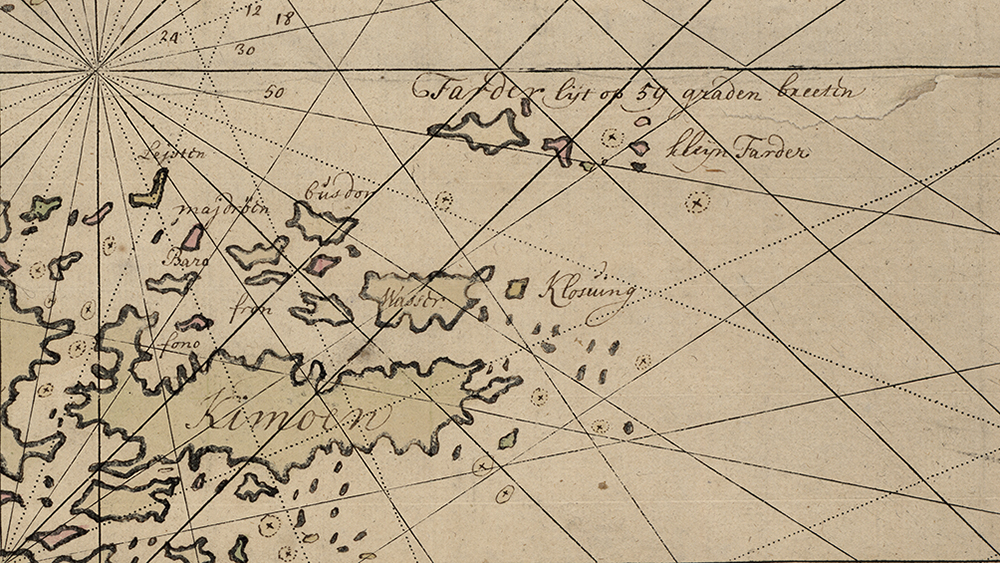About the project
This project investigates the history of knowledge and environmental awareness in, around and beyond the Atlantic Ocean from 1600 until today.
As evidence mounts that maritime ecologies are under threat following the expansion of human activities at sea, we approach these crises from the sea and through history, by attending to the plurality of knowledges and institutions that underpin many maritime activities.
An international and interdisciplinary group of scholars aims to renew historical scholarship about the oceans of the world, by doing original empirical research into the history of oceanic knowledges, including but not limited to science, as well as novel theoretical considerations of their formats, such as records, maps and models.
Goals
We study how “formats of oceanic knowledge” such as records, maps and models have inscribed, arranged and transported knowledges of the sea over the last 400 years. Using under-explored private and public archives, we aim at revealing how records, maps and models have shaped how oceans have been used and perceived.
We also ask to what extent these epistemic formats have encouraged excessive exploitation of resources, or conditioned forms of “environmental reflexivity”.
By investigating the historical dynamics of knowledge, environmental awareness and the cycle of decline in ocean health, the project directs attention to crises “in-the-making” and their historical and epistemological underpinnings. Hence, the project ambitiously aims at adding to the agenda of “ocean literacy”.
Full project description (PDF)
Sub-projects
- Work Package 1 “Theory and methodologies” structures the work on the conceptual frameworks and underpinnings of the project as a whole, working across and tying together the three empirically oriented work packages that are delineated along the three format-categories of records, maps and models.
- Work Package 2 “Records” structures the empirical and diachronic work on types of records produced at sea.
- Work Package 3 “Maps” structures the empirical and diachronic work on sea maps and charts.
- Work Package 4 “Models” organizes the work on models in the history of oceanic knowledges.
Cooperation
Financing
The Research Council of Norway, Marinforsk, project nr. 325312.
Duration
01.12.2021 - 30.06.2025.
